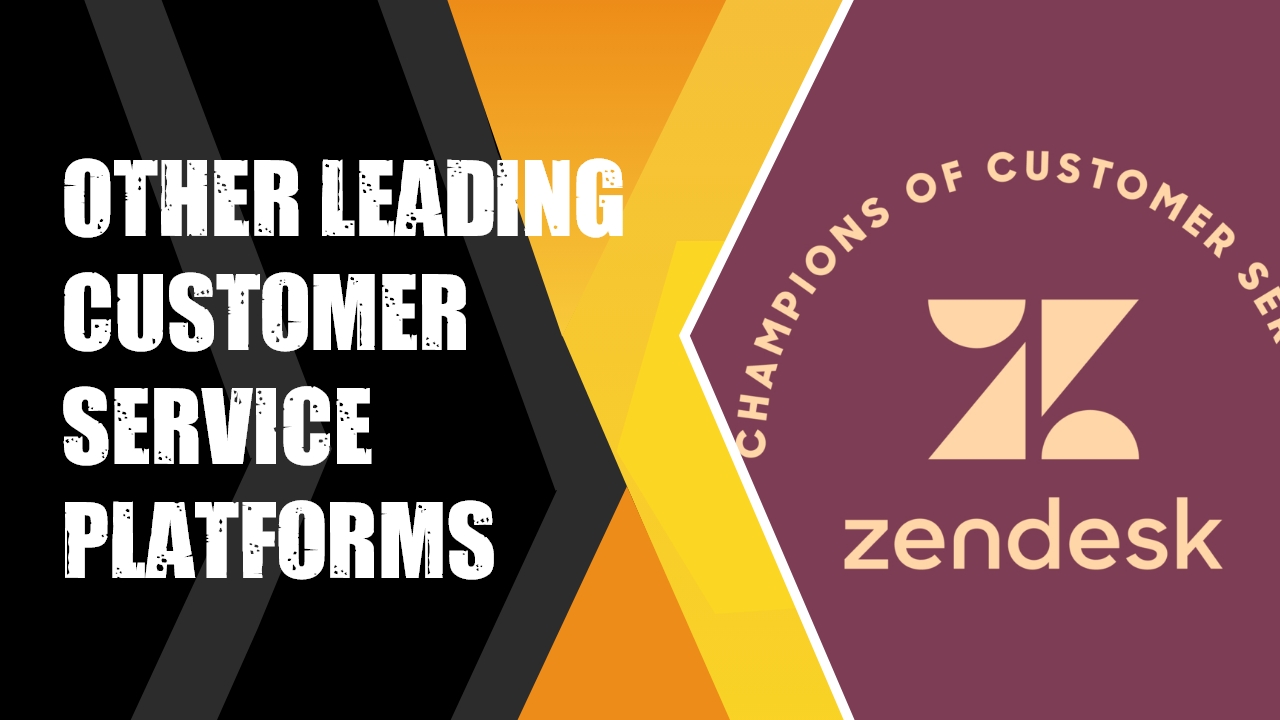Zendesk and 3 Other Leading Customer Service Platforms
In today’s competitive business landscape, exceptional customer service is a critical component of success. Effective customer service platforms enable companies to manage customer interactions efficiently, resolve issues promptly, and foster positive relationships. Zendesk is a prominent player in this space, but several other leading platforms also offer robust solutions to enhance customer service. This article explores Zendesk and three other top customer service platforms: Freshdesk, Salesforce Service Cloud, and ServiceNow, highlighting their features and benefits.
1. Zendesk
Zendesk is a widely recognized customer service platform known for its user-friendly interface and comprehensive suite of tools. Founded in 2007, Zendesk has established itself as a leading solution for managing customer interactions and improving service efficiency.
Key Features:
- Multi-Channel Support: Zendesk provides support across multiple channels, including email, chat, phone, and social media. This omni-channel approach ensures that customers can reach out through their preferred medium.
- Ticket Management System: The platform features a robust ticket management system that helps streamline the process of tracking, prioritizing, and resolving customer inquiries. Agents can easily manage tickets, assign tasks, and track resolution progress.
- Knowledge Base and Self-Service: Zendesk offers tools for creating a knowledge base and self-service portal, allowing customers to find answers to common questions and issues on their own. This can reduce the volume of incoming support requests and improve customer satisfaction.
- Analytics and Reporting: The platform includes powerful analytics and reporting tools that provide insights into customer interactions, agent performance, and service metrics. This data helps businesses identify trends, measure performance, and make data-driven improvements.
Pros:
- Comprehensive multi-channel support for a seamless customer experience.
- User-friendly interface with intuitive ticket management and workflow automation.
- Strong analytics and reporting capabilities for performance tracking and optimization.
Cons:
- Some advanced features may require additional customization or integration.
- Pricing can be high for small businesses or those with limited budgets.
2. Freshdesk
Freshdesk is another leading customer service platform that provides a range of features designed to enhance customer support and engagement. Launched by Freshworks in 2010, Freshdesk has gained popularity for its ease of use and flexibility.
Key Features:
- Omni-Channel Support: Freshdesk supports multiple communication channels, including email, chat, phone, and social media. This ensures that businesses can provide consistent support across different platforms.
- Automated Workflows: The platform includes automation tools to streamline repetitive tasks, such as ticket assignment, response templates, and follow-up actions. This helps improve efficiency and reduce response times.
- Collaboration Tools: Freshdesk offers collaboration features that allow support teams to work together effectively. Features like shared inboxes, internal notes, and team collaboration tools facilitate communication and coordination among agents.
- Customization and Integration: Freshdesk provides a high level of customization, allowing businesses to tailor the platform to their specific needs. It also integrates with a wide range of third-party applications and services, including CRM systems and productivity tools.
Pros:
- Easy-to-use interface with a focus on automation and efficiency.
- Strong collaboration tools for support team coordination.
- Flexible customization options and extensive integration capabilities.
Cons:
- Some advanced features may be limited in the lower-tier pricing plans.
- Integration setup and customization may require technical expertise.
3. Salesforce Service Cloud
Salesforce Service Cloud is a comprehensive customer service platform that is part of the Salesforce ecosystem. Known for its powerful CRM capabilities, Service Cloud integrates customer service with sales and marketing functions.
Key Features:
- Integrated CRM: Salesforce Service Cloud is integrated with Salesforce CRM, allowing for a unified view of customer interactions and data. This integration helps agents access relevant information and provide personalized support.
- AI and Automation: The platform incorporates artificial intelligence (AI) through Salesforce Einstein, offering features such as predictive analytics, automated case routing, and chatbots for handling common queries.
- Knowledge Management: Service Cloud provides robust knowledge management tools, enabling businesses to create and maintain a comprehensive knowledge base. This helps agents quickly find information and provide accurate responses to customers.
- Analytics and Reporting: Salesforce Service Cloud offers advanced analytics and reporting capabilities, allowing businesses to track service performance, customer satisfaction, and agent productivity. Customizable dashboards and reports provide actionable insights.
Pros:
- Seamless integration with Salesforce CRM for a unified customer view.
- Advanced AI and automation features for enhanced efficiency and personalized support.
- Extensive knowledge management and reporting tools for performance tracking.
Cons:
- The complexity of the platform may require extensive training and onboarding.
- Higher pricing tiers may be expensive for small to mid-sized businesses.
4. ServiceNow
ServiceNow is a leading IT service management (ITSM) platform that has expanded its offerings to include customer service management (CSM). Founded in 2004, ServiceNow is known for its powerful automation and workflow capabilities.
Key Features:
- Integrated Service Management: ServiceNow provides integrated service management solutions, combining ITSM with customer service management. This integration helps streamline processes and improve efficiency across different service areas.
- Workflow Automation: The platform includes robust workflow automation tools that enable businesses to automate repetitive tasks, manage service requests, and ensure consistent service delivery. Customizable workflows help tailor the platform to specific needs.
- Self-Service Portal: ServiceNow offers a self-service portal that allows customers to submit service requests, track progress, and access knowledge articles. This portal enhances the customer experience and reduces the need for direct support interactions.
- Advanced Analytics: The platform features advanced analytics and reporting capabilities, providing insights into service performance, customer satisfaction, and operational efficiency. Dashboards and reports help businesses make data-driven decisions.
Pros:
- Integrated service management for IT and customer service functions.
- Strong workflow automation and self-service capabilities.
- Advanced analytics and reporting for performance monitoring and improvement.
Cons:
- The platform’s complexity may require significant setup and configuration.
- Pricing can be high, particularly for small businesses or those with limited budgets.
Final Thoughts
Zendesk, Freshdesk, Salesforce Service Cloud, and ServiceNow are all leading customer service platforms that offer distinct features and benefits. Zendesk is known for its comprehensive multi-channel support and robust analytics, while Freshdesk provides ease of use and strong automation capabilities. Salesforce Service Cloud excels with its CRM integration and AI-driven features, and ServiceNow stands out with its integrated service management and advanced workflow automation. By understanding the unique strengths and offerings of each platform, businesses can select the customer service solution that best aligns with their needs and enhances their ability to deliver exceptional support










